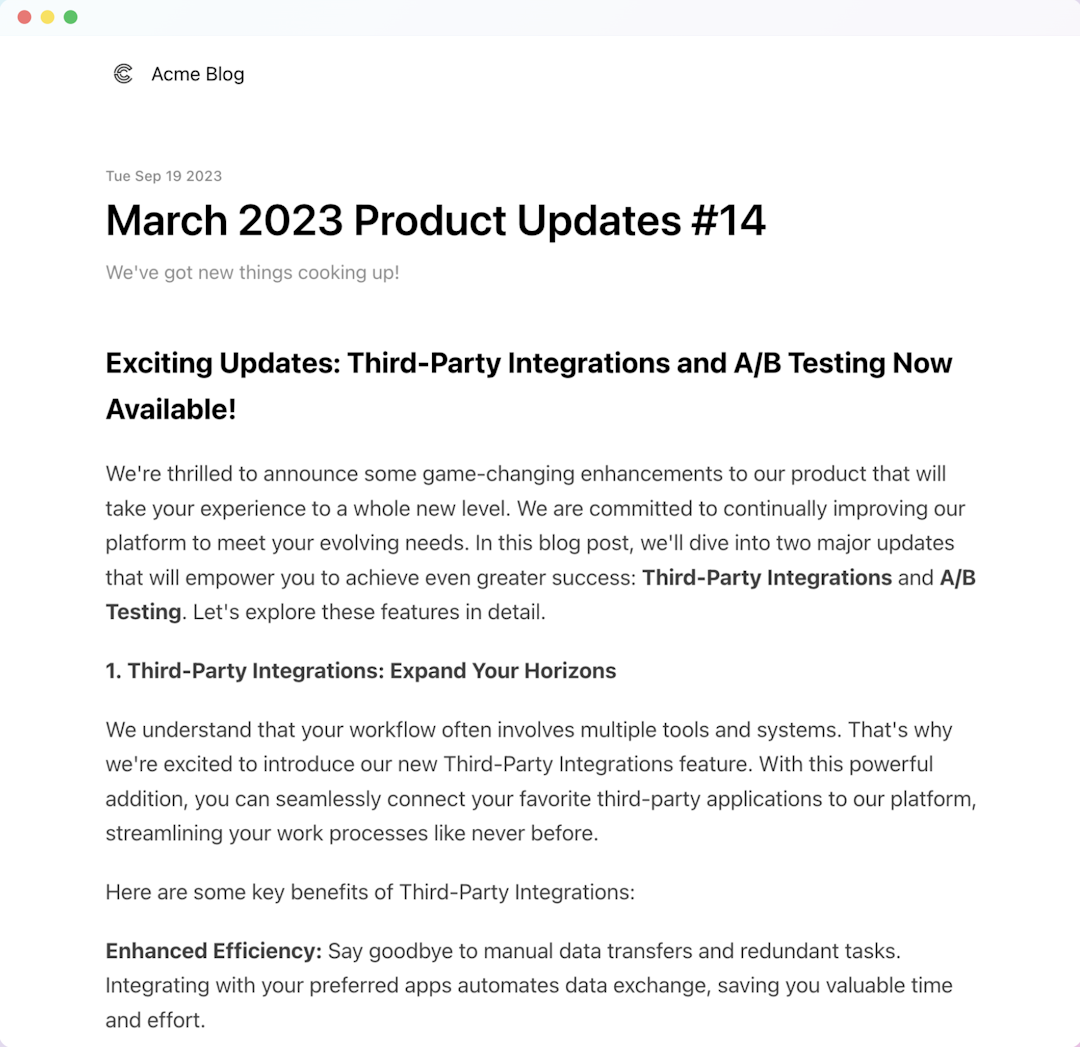Content marketing has been a very effective strategy to generate higher conversions for many businesses. Almost every single business website you visit has a public blog. Here are a few patterns we've noticed in many blog pages that might be hurting your blog's SEO performance and conversion rates.
#1 - Content Strategy
This is probably where I see most blog pages suffering in terms of SEO performance. A blog's content is the most important part that contributes to its performance.
Your blog needs to have a content strategy: Who are your intended readers? What value are you bringing to your readers? What action do you want your readers to take? Your content needs to have a purpose, and you must think about that before writing any article.
With the dawn of AI, be aware of over-relying on it to generate your content. AI is undeniably a very useful technology, but we don't believe that it is always reliable.
It is ok, and encouraged, to use AI for content inspiration, but ALWAYS double check and verify what content you put into your blog. Many search engines have strict policies on AI-generated content. For example, Google views "auto-generated" content as a violation of its spam policies:
Spammy automatically generated (or "auto-generated") content is content that's been generated programmatically without producing anything original or adding sufficient value; instead, it's been generated for the primary purpose of manipulating search rankings and not helping users. Examples of spammy auto-generated content include:
Text that makes no sense to the reader but contains search keywords
Text translated by an automated tool without human review or curation before publishing
Text generated through automated processes without regard for quality or user experience
Text generated using automated synonymizing, paraphrasing, or obfuscation techniques
Text generated from scraping feeds or search results
Stitching or combining content from different web pages without adding sufficient value
If your blog violates Google's spam policies, it "may rank lower in results or not appear in results at all."
A content strategy we've seen to be very effective is to look at articles that already rank high in search results, and then write better articles than them. However, make sure that the content is relevant to your blog/business.
Ahrefs also has a great article on creating an effective SEO content strategy. We recommend checking it out here.
#2 - Performance
No matter how great your blog is, poor performance will lead to higher bounce rates and lower engagement. Google has done a whole study on this, and you can see their findings here:


#3 - Reading Experience
As per Wix.com
The ideal blog post length is between 1,500 - 2,500 words, with a sweet spot right at 2,450. This length allows you to provide your readers with enough information to be informative and helpful, while also keeping their attention.
So if you expect your reader to be highly engaged with your article, you must provide a great reading experience. What does this mean, you ask? Well, it means to make sure that your blog checks these items:
Legible text & font
Clean UI (colors, contrast, layout) - nothing that disturbs the reader
Consistent spacing (line height, text spacing, etc.)
I think these principles are better expressed with examples. Below is an image of two company blog pages. The left image shows an article page from Notion's blog and the right image of an article from OpenAI's blog:

You can clearly tell that Notion's blog page is better designed, having a much better content layout and spacing. OpenAI's blog page suffers from inconsistent spacing and a tight line height.
#4 - Does Your Blog Even Rank?
Let's say you have your content strategy planned out, your blog's performance is top-notch, and your blog has a great reading experience. But, does your blog even rank in search engines?
There is no point in publishing content online if no one can view it (via search results). Although Google has a very advanced web crawler that aims to crawl most web pages, it is not guaranteed to index your page so that it can appear in search results. One way to see if your blog ranks in Google is to type site:[your_domain] and see if any results show up.
If no results show up, that means that your content is not reachable from Google. To fix this, you can go manually into Google Search Console and submit a sitemap of your blog or request indexing for specific page URLs.
If you use a specialized blogging platform, like Blogkit, it automatically requests Google to index your blog pages after every new article so that your articles are ranked faster in search results.
We hope you learned something from this article. If your blog page is struggling, 9 out of 10 times it's because of your content strategy. We recommend focusing on that first and then paying attention to other aspects of your blog.

